James Hugunin
The seme is the generic basic structural unit. In language, the basic structural unit of the sentence is the morpheme (the word); the basic structural unit of the word is the phoneme. The basic structural unit of photography and film is the frame, which may be sewn together to produce a contact sheet, a series, or imply motion. In the series "It Just Seems Sew" I explore fragments of text copped from both philosophical and literary texts that pertain to perception and how we come to know things -- using Spanish philosopher José Ortega y Gasset's terminology -- as either presented, re-presented, or mentioned to us. Although initially done in 1972, this work continues to inform my interest in knowledge theory and in the relationship between image and text.
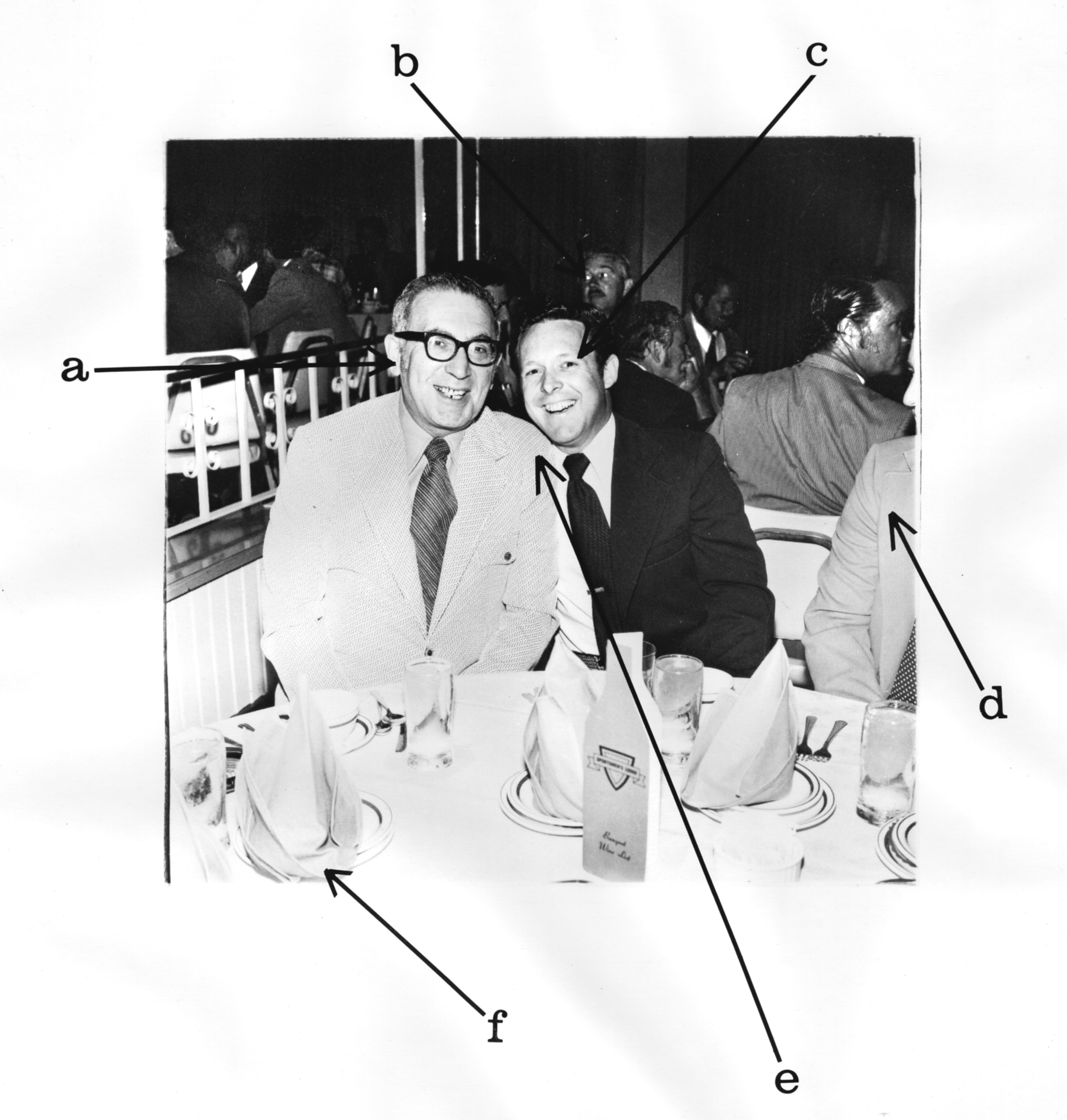
A to E, (gelatin silver
print, transfer type added, 8 x 10 in., 1973) James Hugunin
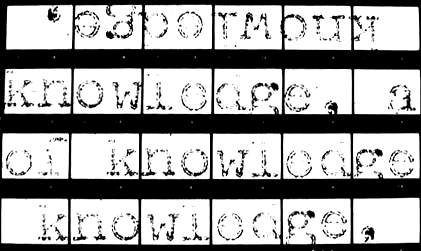
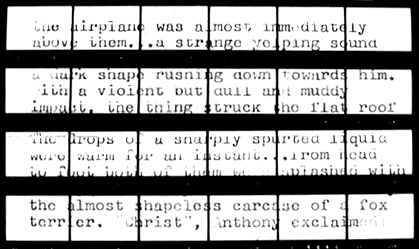
Christ Anthony Exclamed
(Aldous Huxley)
(gelatin silver print,
typewriter ink on film, 8 x 10 in., 1972) James Hugunin
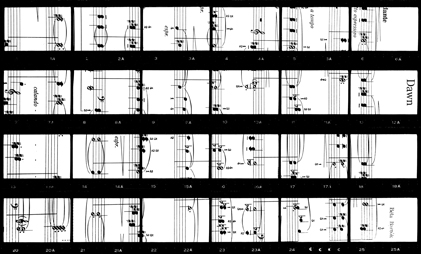
Dawnx (Bela Bartok
(gelatin silver print,
typewriter ink on film, 8 x 10 in., 1972) James Hugunin

Mystery
(gelatin silver print, typewriting on paper
with photomat strip, 8 x 11 in., 1974) James Hugunin
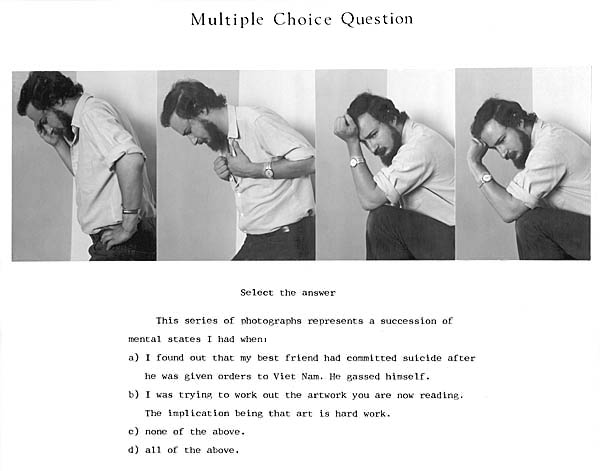
Multiple Choice Question
(gelatin silver print, typewriting
on paper with Polaroids, 8.5 x 11 in., 1974) James Hugunin
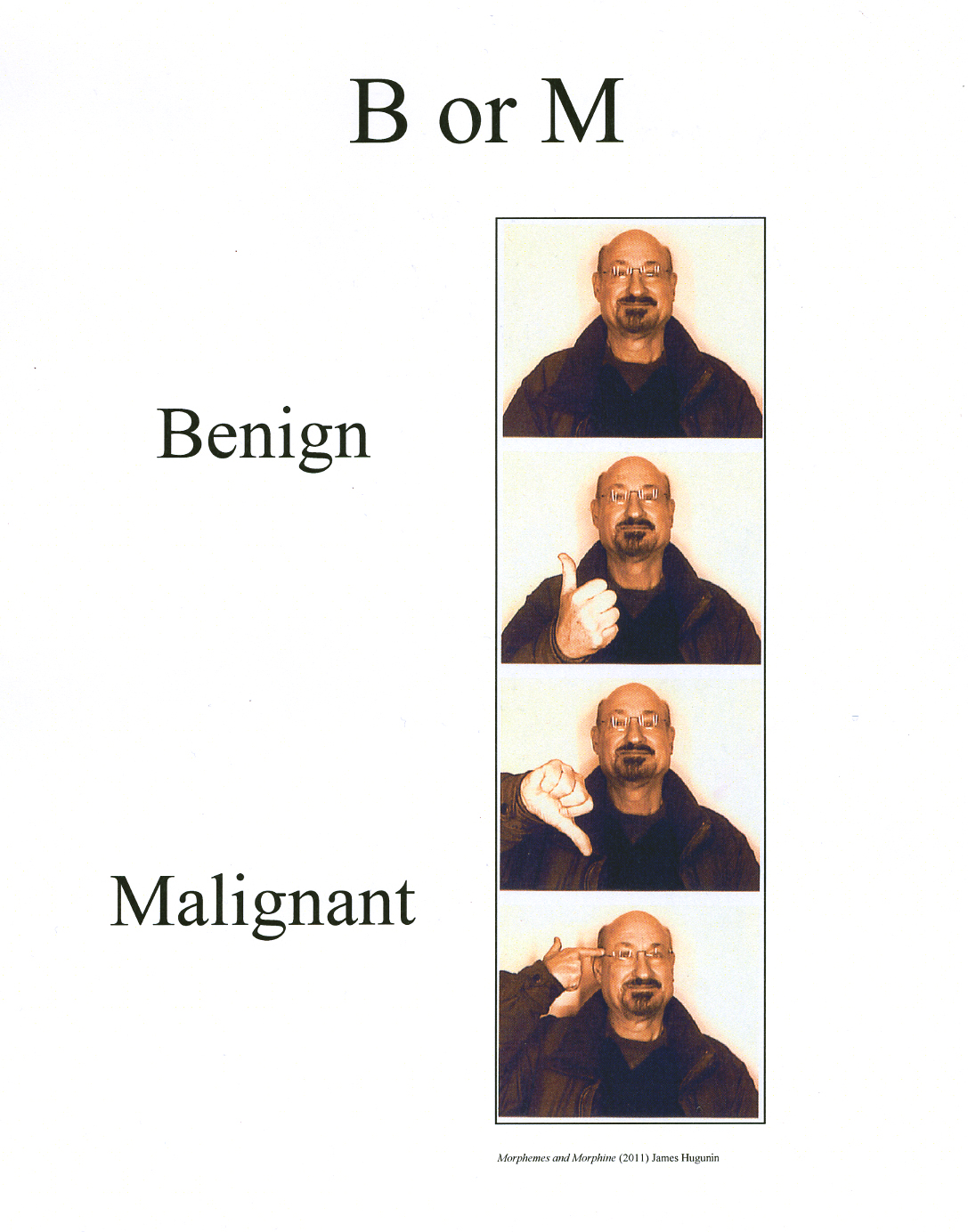
Morphemes and Morphine
(2011) James Hugunin
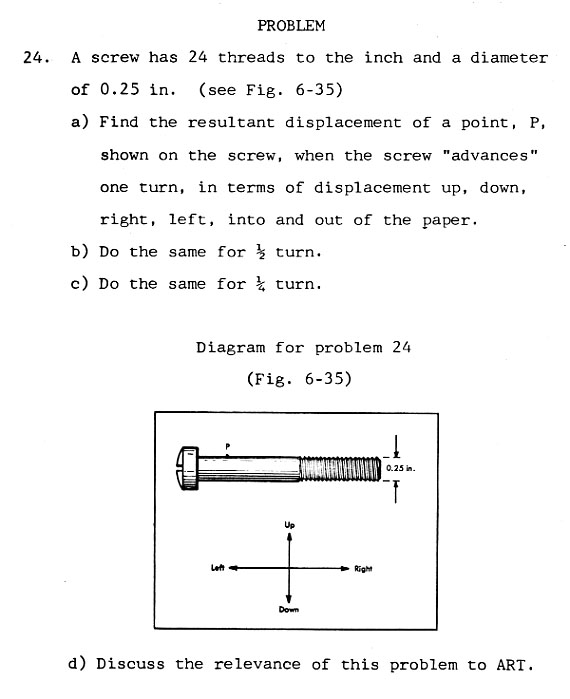
Problem: Art and Technology
(collage,
typewriting on paper, 8.5 x 11 in., 1974) James Hugunin
In 1975 I did an installation called Photographic Memory/Fantasy Frame which consisted of black tape and stick-on type placed on a white gallery wall. Thereon,the viewer provided a virtual photographic image rooted in one's personal experience. This was inspired by reading a passage in Susan Sontag's On Photography (1973) wherein she observed that photographs become a replacement memory. Another inspiration was the famous short story by Saki, "The Open Window," wherein a window frames imaginary contents that are suggested to a visitor by the home's peculiar occupant. Similarly, in this series the viewer imagines the subject in the fantasmic space of the frame based on the imagery elicited by the textual prompt; hence, each viewer can visualize their own unique imagery based on their own memories.





